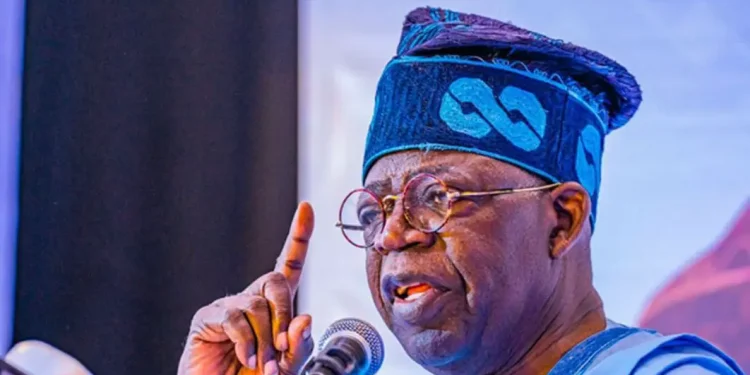Nigerian President Bola Tinubu has warned young people against participating in nationwide cost-of-living protests scheduled for next week, labeling the demonstrations as orchestrated by “sinister” individuals exploiting Nigeria’s economic challenges.
The planned protests have drawn inspiration from recent events in Kenya, where demonstrators successfully pressured President William Ruto to scrap proposed tax increases and dismiss nearly his entire cabinet. Now, protesters in Kenya are calling for Ruto’s resignation.
Nigeria’s most recent significant protest was the #EndSARS movement three years ago, which sought to disband a notorious police unit accused of extrajudicial killings. Although the movement achieved its goal, it was met with a violent crackdown, resulting in the deaths of dozens of protesters.
As the August 1 demonstrations approach, President Tinubu has urged organizers to cancel their plans. “Capitalising on the economic hardship in the country, some men and women with sinister motives have been reported to have been mobilising citizens, particularly youths, to stage a protest,’’ he said. This message was conveyed on his behalf by Secretary to the Government George Akume during a meeting with traditional leaders on Monday.
Drawing comparisons with India, which has experienced religious clashes, and Sudan, ravaged by civil war, Tinubu added: “Let’s learn from India and Sudan’s experiences. We are a country with more than 200 million people. Therefore, we can’t afford to have this kind of situation.”
Trade union leaders are calling on Tinubu to engage with the protest organizers instead of dismissing their concerns as “sponsored political dissent.” The Nigeria Labour Congress highlighted the severe economic distress many Nigerians face: “A situation where most Nigerian families are forced to eat one miserable meal a day and eating from the dustbin beckons for serious intervention by the government.”
Tinubu’s supporters have accused backers of defeated presidential candidate Peter Obi of orchestrating the protests and using social media to spread dissent with hashtags like #TinubuMUSTGo and #EndBadGovernanceInNigeria. “Obi should be held responsible for anarchy,” stated presidential adviser Bayo Onanuga in an online post.
In response, Obi’s Labour Party has denied any involvement in the protests, calling the allegations a “figment of the author’s imagination” and describing the government’s stance as “puerile.” The party’s statement emphasized, “Labour Party, Peter Obi, and our supporters are not planning any protests,” but also asserted, “The people have the right to protest and it is within their constitutional right.”
Obi, who galvanized significant youth support in southern Nigeria during the 2023 election but ultimately placed third, has claimed the election results were rigged in Tinubu’s favor. However, a court dismissed his case.
Local media report that opposition to the planned protests also comes from groups such as the Self Reliance for Physically Challenged Traders of Nigeria. They express concerns about potential violence, recalling the turmoil from the #EndSARS protests, which left lasting scars on the nation.
In Uganda, similar tensions are evident. President Yoweri Museveni warned protesters against “playing with fire,” accusing them of undermining his government. This came after several demonstrators were arrested on Tuesday while attempting to protest against government corruption.
On the same day, in neighboring Kenya, police used tear gas to disperse hundreds of protesters in Nairobi, many of whom were trying to shut down operations at the main airport. The wave of protests across Africa highlights widespread discontent with governance and economic management.



